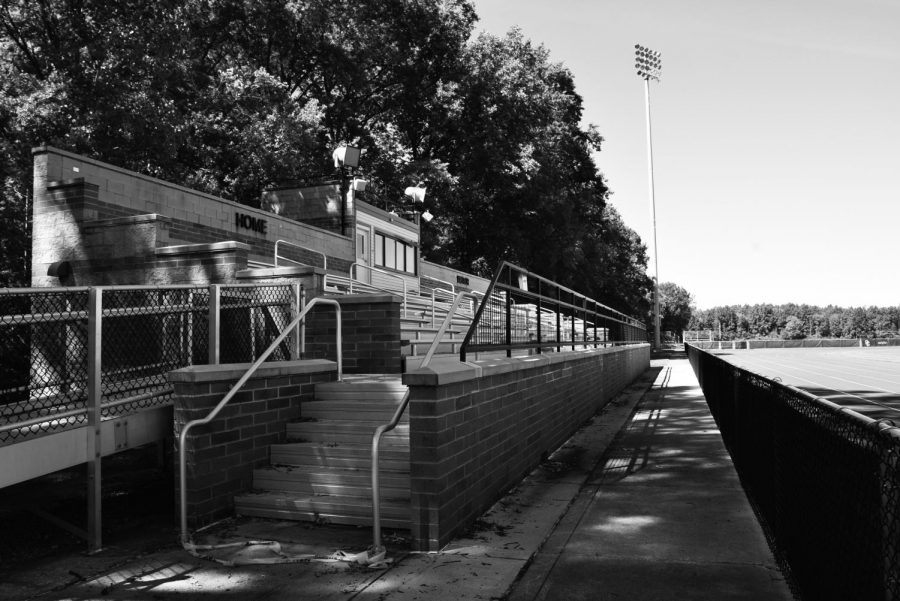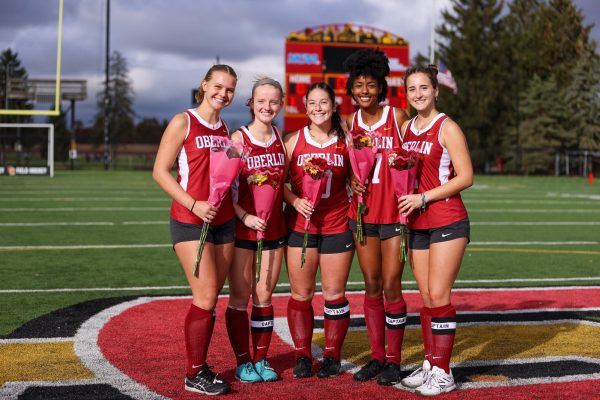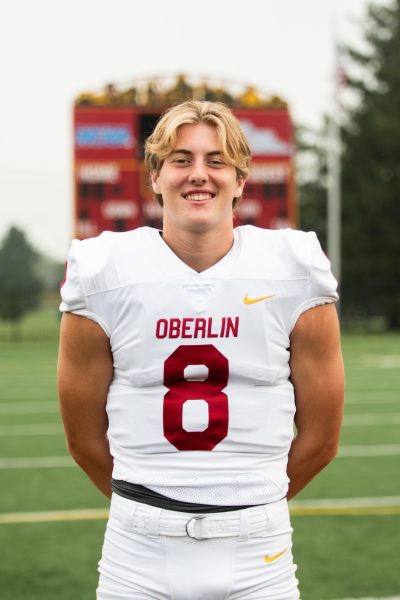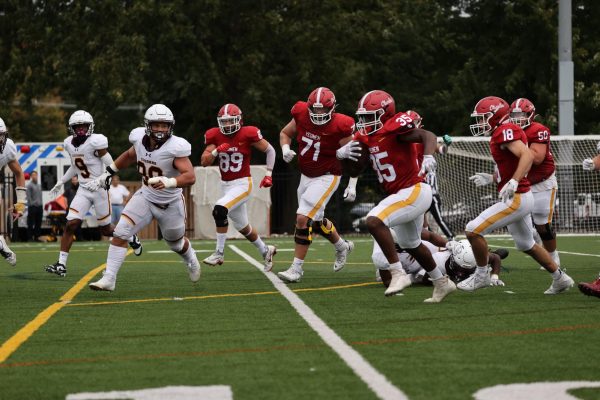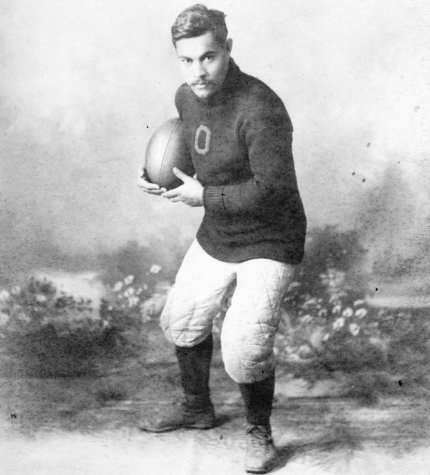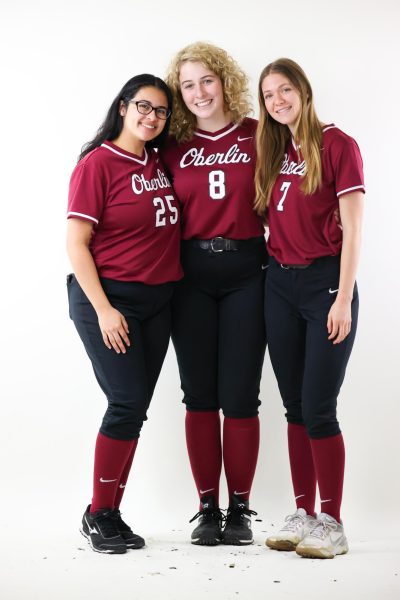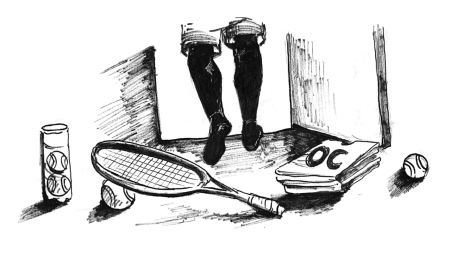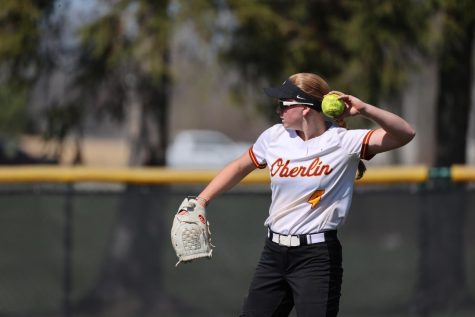Athletics Community Reacts to the Cancellation of Fall Sports
Football games will no longer be held at the Dick Bailey Field following the suspension of fall athletic competitions.
Without competitions to prepare for, coaches have had to adjust their plans for this season. Oberlin College came to the difficult decision to cancel all fall athletics on June 22, 2020 as a result of the COVID-19 pandemic. A month later, the North Coast Athletic Conference overall announced that they would make the same decision.
After seeing the previous spring season meet the same fate, fall athletes are now living through the same shock and pain their peers experienced months prior.
Delta Lodge Director of Athletics and Physical Education and Associate Vice President for Athletics Advancement Natalie Winkelfoos explained that, while she would have loved to see athletics continue, the College’s concerns over keeping student athletes and the campus at large safe during the COVID-19 pandemic ultimately cemented their decision.
“Health and safety brought us to this decision and the responsibility that we feel for the entire campus community,” Winkelfoos said. “I think we feel a social responsibility.”
Wellness Coordinator and Head Softball Coach Sara Schoenhoft has already seen the impact that losing a season had on students after the spring season was canceled. Still, she also believes that this could be a beneficial time for athletes regardless.
“I know this may be a little dramatic, but honestly, to me, it is a little bit heartbreaking for fourth-year students,” Schoenhoft said. “But — and we always say this as coaches who are former athletes — you’re not going to look back in twenty years and remember the scores of games or your stats or anything like that. You remember the relationships you had with your teammates and the fun memories you had.”
College fourth-year and football player Luke Buck was one of the many athletes who had his career unexpectedly cut short. For him, the announcement was devastating.
“Your first response is obviously disappointment,” Buck said. “Then, you eventually get to a point where you realize that this was probably a decision that was made for the best, in the interest of keeping the entire campus safe. But I don’t think that there is any real way to describe how that feels, especially when this was going to be my senior season.”
While it hurts Winkelfoos, a former athlete, to see athletes like Buck lose their season, she is excited for what the future could hold.
“What is that athletics experience going to look like without competition?” Winkelfoos asked. “We’re still going to be able to do some training sessions in very small groups. So we’re still gonna have that physical outlet, but now we’re stripping down athletics to its core of what it is, and it is an educational opportunity. I think we’re also looking forward to having some fun.”
While Winkelfoos may see this as an opportunity to get to the core of athletics, athletes like Buck are trying to figure out how to stay involved despite their frustrations.
“There’s nothing I can do really about trying to salvage my season,” Buck said. “[Winkelfoos] has talked about still having that competitive teamwork atmosphere that comes through sports and comes through competition, but there’s nothing that can really replicate that in my mind anyway. I think that my goal for what I can contribute and what this team can accomplish in this fall would be preparing the younger classes to win games in the future.”
Similarly to both Winkelfoos and Buck, Schoenhoft sees the unfortunate reality of the situation, but she is also excited to see her team leaders step up during this challenging time.
“I think our team captains are going to be so important,” Schoenoft said. “They’re going to set the tone for dealing with this kind of unprecedented situation… [They’re going to have to] model someone who is going to continue to work hard, even though there’s not competition… to help everyone to navigate this situation.”
For administrators and coaches like Winkelfoos and Schoenoft, the decision has forced them to reassess how they can support student athletes. For athletes themselves, this decision represents an added loss to an already difficult year. Even so, Buck understands that this was necessary.
“There’s AAU basketball tournaments happening, travel baseball, travel softball tournaments happening, and it’s really hard to not fall into that, ‘Well, if they can play their sport right now, like why can’t I?’” Buck said. “Ultimately that reason is, we’re a part of the 3,000 students that make up Oberlin College and Conservatory. That has to be the number one concern, keeping everyone safe.”


